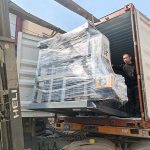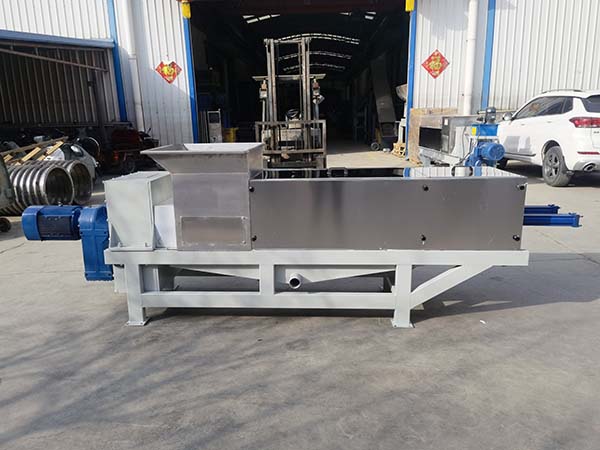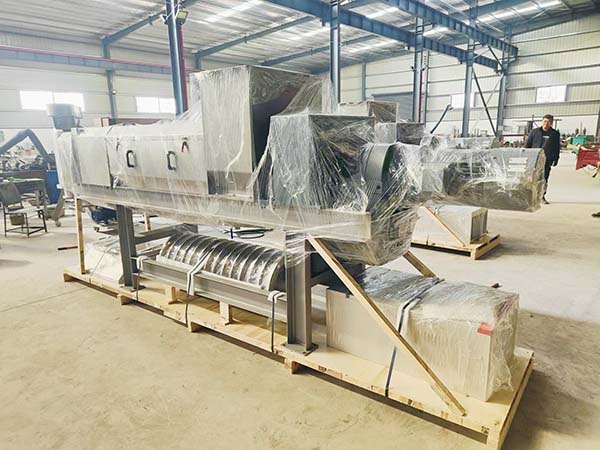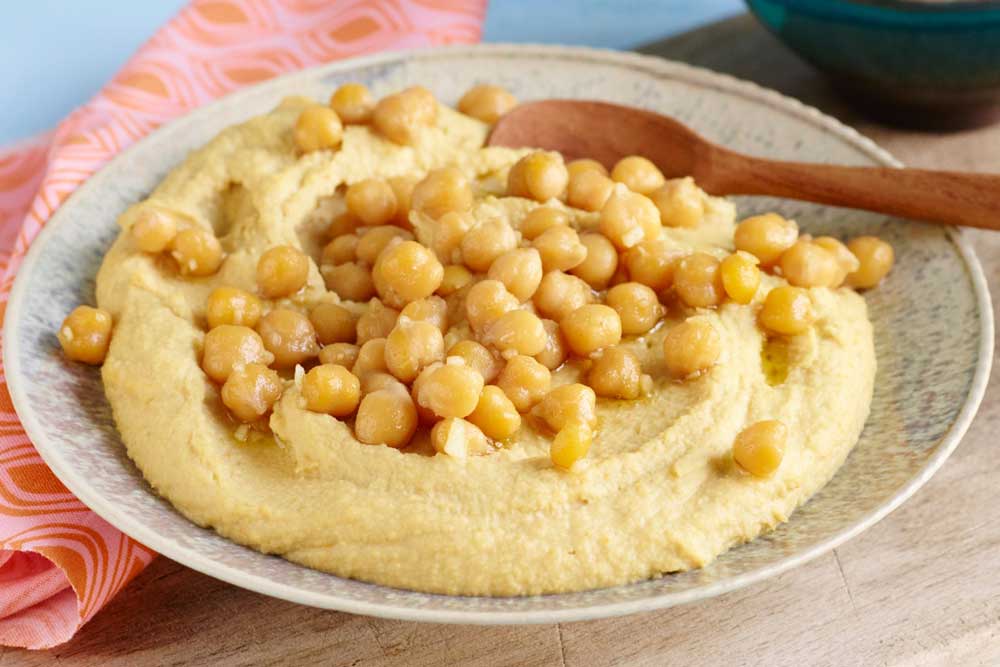
Shipment of Trash Can Lifters to Germany
01/23/2025
Juice Production Line
02/08/2025
Shipment of Trash Can Lifters to Germany
01/23/2025
Juice Production Line
02/08/2025Tea residue is a by-product of tea extraction and brewing processes, which is fibrous and contains a high amount of water (typically over 70%). Dewatering tea residue can remove excess moisture significantly, reducing the weight and volume of tea residue, thereby making it easier to transport or store. Moreover, the dewatered tea residue is more suitable for repurposing into products like compost, animal feed, or biomass fuel, enhancing its economic value.
Furui Machinery offers both twin screw presses and tapered screw presses for tea residue processing. The screen mesh sizes range from 0.3 mm to 2.5 mm, allowing customization based on the material's size and your requirements. Our screw and screen are made of stainless steel, ensuring durability and resistance to corrosion, even in demanding conditions.
Advantages of Tea Residue Dewatering Machine
A screw press machine offers several advantages in tea residue processing, making it an efficient and cost-effective choice for handling by-products in tea production.
1. Waste Reduction
The screw press dewatering machine is designed to remove excess moisture from tea residues, reducing their water content significantly, thereby greatly reducing the waste volume and weight.
2. Cost Savings
By reducing the moisture content, the volume and weight of the tea residue are minimized, lowering transportation and storage costs. Additionally, the reduced moisture can decrease drying costs if further processing is required.
3. Environmental Benefits
The machine aids in managing tea production waste more sustainably. Dewatering helps avoid excessive waste in landfills, contributing to sustainable waste management practices.
4. Value-Added Products
Dewatered tea residues can be repurposed into high-value products such as organic fertilizers, animal feed, or biofuel, creating additional revenue streams.
5. Reduced Odor and Mess
Removing excess moisture minimizes the risk of odor and mess caused by wet residues, improving hygiene and safety in the workplace.
6. Versatility
The screw press dewatering machine can handle tea residue in multiple forms, such as wet, slurry-like. Additionally, it is capable of processing other materials, such as herb residue, for diverse applications.
Applications
The screw press dewatering machine is a versatile and widely-used mechanical device in industries such as pharmaceuticals, food processing, and chemicals.
- Tea Industry: Efficiently handles residues from tea brewing, tea leaf extraction, and tea manufacturing processes.
- Animal Manure Management: Separates liquid and solid fractions from animal manure (e.g., cow, pig, or poultry manure) for organic fertilizer production or disposal.
- Juice Production: Extracts juice from fruits and vegetables such as apples, ginger, wheatgrass, Napier grass, and beets, and also processes fruit and vegetable waste.
- Agricultural Waste Processing: Dewaters agricultural waste, including corn stalks, grass, coffee grounds, palm fruit fiber or kernel shells, coconut shells, and coconut fiber.
- Herb Residues and Spent Grain: Processes herb residues, spent grains, brewery waste, and similar byproducts for reuse or disposal.
- Pulp Dewatering: Handles paper or wood pulp efficiently in industrial applications.

Dewatering Press Machine

Tea Residue Screw Press to Sri Lanka
Tea Residue Dewatering Process
- Pre-Treatment: Large or fibrous tea residues need to be crushed to improve the uniformity of dewatering.
- Feeding into Screw Press: Crushed residues are fed into the screw press machine using conveyors or manually.
- Dewatering Process:
- Screw Compression: The machine uses a rotating screw shaft to compress the tea residue. As the tea residue moves through the screw press, the pressure increases and forces the liquid out through the screen.
- Liquid Separation: Extracted water drains through filters, while solids are discharged through the outlet.
- Backpressure Regulation: The machine’s backpressure system ensures optimal dewatering and allows adjustment of the final moisture content.
Uses of Dewatered Tea Residue
The dewatered tea residue, with a significantly reduced moisture content, can be repurposed for the following uses:
- Composting:
Tea residue is rich in organic matter and nutrients, making it an excellent material for composting. It can be directly used to produce organic fertilizers, enhancing soil fertility and promoting sustainable agriculture. - Biofuel Production:
After further drying, the solid residue can be processed into biomass fuel, such as briquettes or pellets. - Animal Feed Additive:
In some cases, dewatered tea residue can be used as a raw material for animal feed after processing. It serves as a cost-effective feed supplement. - Soil Conditioner:
Tea residues can be utilized as a soil amendment to improve soil structure, retain moisture, and increase microbial activity, contributing to healthier crop growth.
Conclusion
Furui Machinery’s screw press dewatering machine is an essential tool for tea residue management, providing an efficient and sustainable solution for handling by-products in tea production. Its ability to reduce waste, lower costs, and create value-added products makes it a smart investment for tea manufacturers and processors.
By transforming wet tea residues into reusable, eco-friendly materials, the dewatering process contributes to a greener, more sustainable future while unlocking economic opportunities. Whether for composting, biofuel production, or other applications, this machine ensures that tea residues are not just waste but valuable resources for diverse industries.




